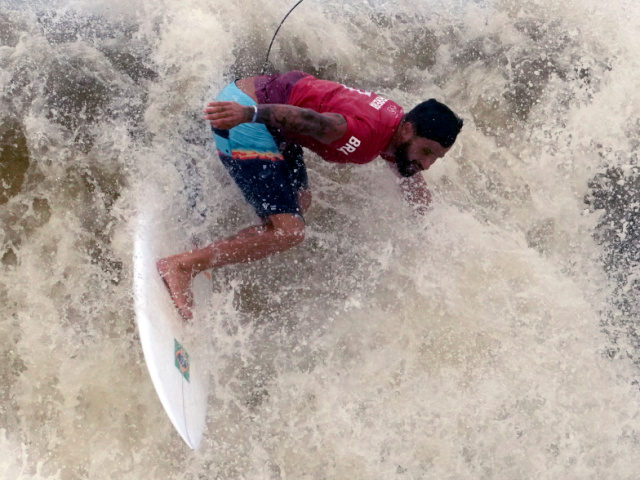Surfing as an Olympic sport was made possible by centuries of American imperialism as the United States used surfing as a tool to expand its powers abroad, according to a recent Washington Post op-ed that warned the sport’s history would continue to be on display during the current 2021 Tokyo Games.
The piece, published on Sunday by Thomas Blake Earle, a postdoctoral fellow at the Center for Presidential History at Southern Methodist University, attempts to depict the water sport’s history as one filled with American imperialism.
Perspective: Centuries of U.S. imperialism made surfing an Olympic sport https://t.co/zoRhc39Ls8
— The Washington Post (@washingtonpost) July 26, 2021
Noting that surfing will be an Olympic sport for the first time during the coming Olympics, where 40 surfers from 17 nations participate in the Tokyo Games, Earle begins by claiming, “Surfing became a global sport because of the exercise of American power on the world stage.”
He continues by describing the alleged history of surfing while claiming that Americans have “used surfing to accomplish the nation’s diplomatic goals.”
“When an expedition led by British Captain James Cook arrived in Hawaii in the late 18th century, its members were astonished by Hawaiian board riders,” he writes, adding that within several decades, American missionaries arriving in Hawaii would view the sport as “an impediment to their drive to Christianize the world.”
Earle then claims that by the early twentieth century, some Americans began viewing surfing as a “tool” to extend American power and its “imperial grasp” abroad.
Following World War II, Earle explains, the American military “fanned out across the globe” as it brought surfing with it.
“Surfing and U.S. military involvement went hand in hand, bringing wave riding to places such as Japan, Vietnam and Central America,” he said.
American traveling surfers “also engaged in the kind of small-scale, person-to-person diplomacy that became a central part of America’s use of soft power to win hearts and minds during the Cold War,” he added.
Claiming that “international sporting events are often touted as world unifying,” Earle explains that the Olympics “also showcase international inequities.”
“The history of surfing similarly shows that the sport is embedded in a history of imperialism,” he writes.
Earle concludes by warning that the sport’s past will continue to “be on display” during current Olympic events.
“Americans brought surfing to the world, doing so in a way that buttressed American power around the globe — and while we may marvel at the athletes riding waves at the Games, this history will also be on display,” he writes.
Last week, the Associated Press (AP) featured an article claiming that surfing and sexism have a long history.
“[T]he damage caused by decades of sexism has not yet been fully reversed,” the article states.
Earlier this month, surfing’s Olympic debut was described as “an extension of the racial indignities seared into the history of the game” in another AP essay.
Follow Joshua Klein on Twitter @JoshuaKlein

COMMENTS
Please let us know if you're having issues with commenting.